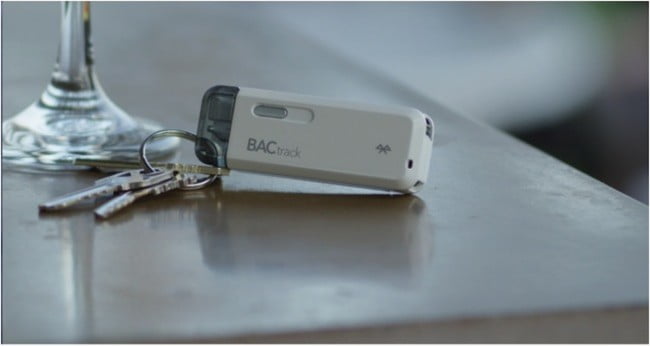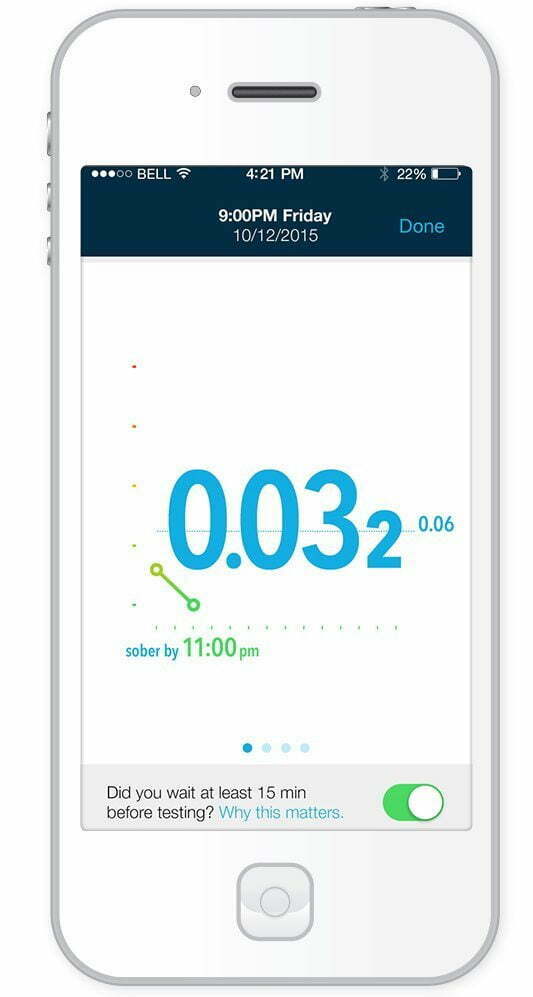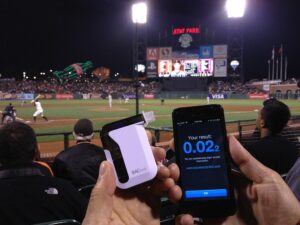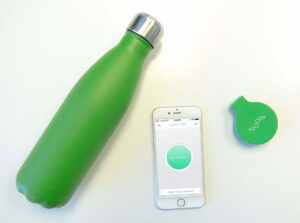Invest in the best breathalyzer, here’s why. I always err on the side of caution when I’ve been imbibing in alcohol. Which is to say, give me one beer and I likely won’t operate a motor vehicle. Call it a previous bad experience. And while not fatal or liable, it was one that left my ego bruised yet my conscience firmly intact. But rarely, especially here in LA, do you find that to be the popular decision, since it’s difficult to travel from one part of the city to the next without incurring a massive taxi bill, though “ridesharing” has helped ease that pain a bit. Nevertheless, my point is that people, especially those below the age of 30, are rarely a good judge when it comes to gauging their level of intoxication with respects to driving. So, the answer would seem to be in the form of this: the BACtrack Vio. Or, compare the Vio with our Breathometer Breeze Breathalyzer review to make the right choice.
To date the Vio is the company’s smallest, lightest and most portable breathalyzer. In fact, so small that it can attach to a keychain and while not totally devoid of some encumbering effects, it’s reasonable in the grand scheme of things (and costs just $50). Included is a single AAA battery and since I’ve only been using the Vio for a better part of a week I can’t tell you how long it’s battery will last. By comparison, their more expensive Mobile includes a microUSB rechargeable battery, but costs $80 more and uses more expensive and what I’d guess energy draining parts due to its accuracy.
That said, I compared the accuracy of the Vio to that of the Mobile. You see the Mobile claims to use a police grade sensor to determine BAC (blood alcohol content), where as the Vio uses a smaller, less powerful sensor. No matter, as the Vio consistently produced the same results as the BACtrack Mobile version. Though I guess the true test would be to walk into a police station and compare both of these against a machine that could remove you of the possession of a driver’s license for up to a year. If not for nothing, perhaps it’s fair to point out that at least BACtrack isn’t without consistency.
Using the BACtrack Vio isn’t a sorted affair. Dump the included AAA battery into it, download the just refreshed BACtrack app (iOS or Android) and pair the two devices by way of Bluetooth. Other models with the mobile tracking app include the one in the BACtrack smartphone breathalyzer android devices review. The BACtrack Vio is all simple stuff that doesn’t require multiple button presses or a set of instructions. Moreover, re-pairing the device after you re-power it up, via a small button on the side of the Vio (power on is indicated by a small blue LED light which mind you flickers when powering down – a nice touch) is quick and painless. Finally, to acquire a reading, it’s just a question of flipping up the mouthpiece – 3 sanitary attachments are included, though no one will carry those with them since it defeats its portable nature – and blowing when the app tells you to do so for 5 seconds (there is a 10 second warm up time and about 45 seconds required between readings). Unlike the BACtrack Mobile, which uses a sensor that clicks when the reading has been completed, the Vio makes no such noise. It’s also a bit tougher to blow into since the ventilation pipe is just that much smaller. If all is done correctly a reading should appear on the screen along with an estimate to the time of sobriety – something BACtrack calls ZeroLine technology.
So, for the most part I have very few negative things to say about BACtrack’s latest, the Vio. The mouthpiece attachments are pretty much useless since you’ll never have them on hand, unless your at home. You cannot compare it with the 5 mouthpieces in the Breathalyzer certification rofeer mouthpieces temperature review. Battery life is questionable, or up in the air at this point, but you already knew that. Accuracy, well, it’s hard to say. But of all the people that I tested it on, it seemed to fairly well represent their BAC with respects to how much they said they had drank and their level of impairment. And on a final note, for those concerned about the weight of the device and size consider this: the size is more encumbering than the weight of it and…and what’s the price you’re willing to pay to avoid a DUI? A slightly bloated pants pocket and 50 less dollars in your wallet? Not a bad deal if you ask me…or a cop.





